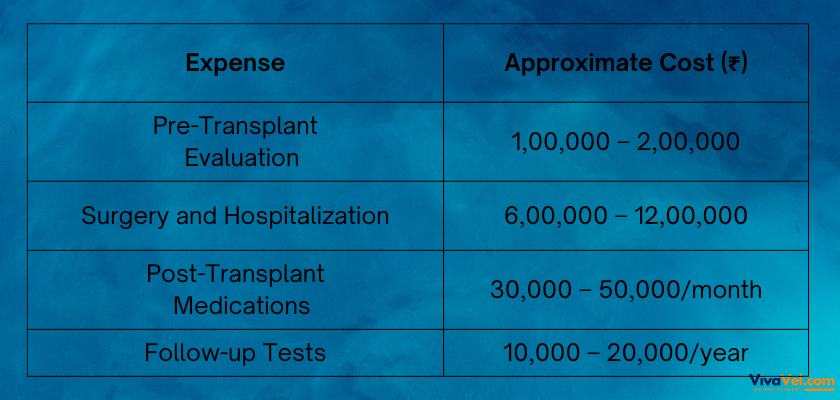The Cost of Kidney Transplant in India: A Comprehensive Guide
Kidney transplantation is a life-saving procedure for individuals suffering from end-stage renal disease (ESRD) or chronic kidney failure. India has become a preferred destination for kidney transplants due to its advanced medical infrastructure, skilled surgeons, and comparatively affordable costs. This blog explores various kidney transplant costs in India, including influencing factors, insurance coverage, and additional expenses.
Overview of Kidney Transplant Costs
The Cost of a kidney transplant in India generally ranges from ₹8 lakh to ₹15 lakh (approximately USD 10,000 to USD 18,000). This amount is significantly lower than in Western countries, where similar procedures cost upwards of USD 50,000 to USD 100,000.
Factors Influencing the Cost
- Type of Hospital: Private hospitals charge more because they offer advanced facilities, personalized care, and shorter wait times.
- Location: Metropolitan cities like Delhi, Mumbai, Bangalore, and Chennai often have higher costs than smaller cities due to increased operational expenses.
- Surgeon’s Expertise: The fees charged by highly experienced and reputed transplant surgeons may contribute to the overall Cost.
- Type of Transplant:
- Living Donor Transplant: Usually less expensive as the donor is readily available.
- Deceased Donor Transplant: Slightly costlier due to organ retrieval and allocation logistics.
- Pre-Transplant Evaluation: Comprehensive tests to assess the compatibility of the donor and recipient can add ₹1 lakh to ₹2 lakh.
- Post-Transplant Medications: Immunosuppressive drugs are essential to prevent organ rejection and may initially cost ₹30,000 to ₹50,000 per month.
- Hospital Stay: The length of hospitalization, including ICU charges, can significantly influence costs. Typically, a 10-15 day stay costs between ₹2 lakh and ₹5 lakh.

Insurance and Financial Assistance
- Health Insurance: Many health insurance policies in India cover the Cost of kidney transplants, including pre-and post-operative care. However, checking for clauses, waiting periods, and exclusions is crucial.
- Government Schemes:
- Ayushman Bharat: Provides financial aid for kidney transplants to economically weaker sections.
- State Health Schemes: Certain states offer subsidies for organ transplant surgeries.
- NGOs and Charitable Trusts: Organizations like the Mohan Foundation assist patients with financial constraints.
Additional Expenses to Consider
- Donor-Related Costs: If the donor requires medical treatment or hospitalization, the recipient may bear these costs.
- Travel and Accommodation: Patients traveling from abroad or distant locations may incur travel and lodging expenses.
- Loss of Income: Both donor and recipient may need extended time off work during recovery.
Why Choose India for Kidney Transplant?
- World-Class Medical Facilities: India’s hospitals are equipped with advanced technology and adhere to international standards.
- Experienced Surgeons: Many Indian transplant surgeons have trained and worked internationally.
- Affordability: The Cost of surgery and post-operative care in India is far lower than in Western countries.
- Short Wait Times: India’s efficient healthcare system often ensures shorter waiting periods for organ transplants.
Conclusion
A kidney transplant is a complex yet essential procedure for patients with severe kidney dysfunction. While the costs in India are more affordable than in many other countries, it is still vital to plan for associated expenses and ensure adequate financial support. By leveraging insurance, government schemes, and charitable assistance, patients can make this life-saving treatment more accessible. With cutting-edge technology and skilled medical professionals, India remains a top choice for kidney transplants worldwide.
Note: This is just an estimate; the actual cost may vary depending on the hospital and the doctor.

